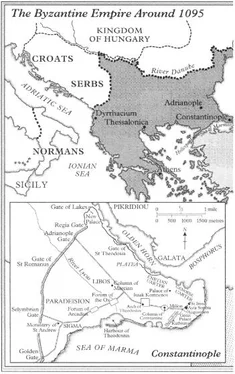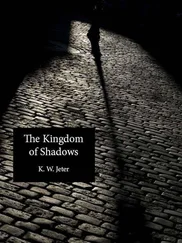Tom Harper - The mosaic of shadows
Здесь есть возможность читать онлайн «Tom Harper - The mosaic of shadows» весь текст электронной книги совершенно бесплатно (целиком полную версию без сокращений). В некоторых случаях можно слушать аудио, скачать через торрент в формате fb2 и присутствует краткое содержание. Жанр: Исторический детектив, на английском языке. Описание произведения, (предисловие) а так же отзывы посетителей доступны на портале библиотеки ЛибКат.
- Название:The mosaic of shadows
- Автор:
- Жанр:
- Год:неизвестен
- ISBN:нет данных
- Рейтинг книги:3 / 5. Голосов: 1
-
Избранное:Добавить в избранное
- Отзывы:
-
Ваша оценка:
- 60
- 1
- 2
- 3
- 4
- 5
The mosaic of shadows: краткое содержание, описание и аннотация
Предлагаем к чтению аннотацию, описание, краткое содержание или предисловие (зависит от того, что написал сам автор книги «The mosaic of shadows»). Если вы не нашли необходимую информацию о книге — напишите в комментариях, мы постараемся отыскать её.
The mosaic of shadows — читать онлайн бесплатно полную книгу (весь текст) целиком
Ниже представлен текст книги, разбитый по страницам. Система сохранения места последней прочитанной страницы, позволяет с удобством читать онлайн бесплатно книгу «The mosaic of shadows», без необходимости каждый раз заново искать на чём Вы остановились. Поставьте закладку, и сможете в любой момент перейти на страницу, на которой закончили чтение.
Интервал:
Закладка:
‘My men are ready,’ the captain told me. Though there was nothing the least secretive about our actions, his voice was hushed. ‘Shall I send for the stone-throwers and ballistas, or do you think we can break this siege ourselves?’
I ignored his sarcasm. ‘This monk commands weapons whose power you could not conceive. Tell your men to beware, for their armour may be no protection.’
The captain shrugged, and fell silent as his men moved towards the building. The sergeant at their head banged on the door but there was no answer.
‘Break it,’ said the captain.
Water was dribbling behind my ear and off my nose; my breaths emerged in ragged clouds, but despite all the misery of cold and damp I felt my heart beating faster, my mind awakening with the hope of success. At the door, the sergeant now had a mattock in his hands, and was swinging it hard against the fractured timbers. The wood did not groan or crack under the impact, for it was too sodden and rotten for that; instead the blow knocked one of the panels clean out of the frame. The sergeant bellowed an order and his men piled forward, driving their boots and shoulders against the flimsy barrier. It did not hold for more than a second. With swords outstretched and shields held before their faces the men charged in, disappearing into the dim room beyond. I heard shouts and the screams of women, the crash and clatter of upturned tables, then the curt staccato of commands.
I could not stay in the street. I ran across to the house, stepped heedlessly over the broken threshold and took in the carnage before me. Two soldiers were kneeling over an elderly man and his wife, pinning them to the ground amid a sea of broken pottery and scattered vegetables. Dried fish lay in pools of olive-oil, while pickled sauces were splashed across the earthen floor. In less than a minute, the soldiers had left barely a single thing in that room untouched.
‘Where is the rest of your company?’ I demanded.
One of the Patzinaks jerked a thumb towards the spindly ladder in the corner. I climbed it two rungs at a time, hoping it would not crack apart under me, and hauled myself through a narrow gap onto the floor above. Frayed curtains had once shielded the room from the stairs, but they were pulled down and bunched on the floor, revealing more carnage: rudimentary pieces of furniture overturned, clothes and keepsakes tipped out of trunks, and even an icon of the holy virgin ripped off the wall. But no Patzinaks.
A second ladder continued the ascent to the topmost level, from where I could hear shouts of triumph and anger. Without another thought I leapt up the ladder, vaulted into the room above, and set my eyes on our new prisoner.
Two Patzinaks were holding his arms, their fingers squeezed tight into his skin as he writhed and struggled between them. He was not dressed as a monk, but in a nondescript woollen tunic which reached almost to his ankles; there was fresh mud on his boots, and dampness on his clothes which suggested he was only recently returned here. His skin was dark and his features hard, set with black eyes which flickered desperately around the room. He was thinner than I had expected; his garments hung from his shoulders like shrouds, and there was a stoop which had not seemed so obvious when I chased him through the snowbound streets. He gave no sign of recognising me.
In a corner, the sergeant stood with his arms crossed over his chest, surveying his achievement. ‘Is this the one?’ he asked.
‘I don’t know.’ Suddenly, after the energy and momentum of the chase, I felt a stab of uncertainty. Surely this was the right man — how could it not be? Feeling my limbs shivering with sudden tension, I walked slowly around the captive until I could see the back of his head.
He did not have a tonsure.
I cringed; I felt as though someone had kicked me in the groin, or punched my throat. Black bile flooded my stomach, and I stepped away from the prisoner. Yet still I clung to my belief, like a drowning sailor to his flotsam. It was weeks since I had caught the monk outside my house, more than sufficient time for his hair to grow back. Indeed, a man so attuned to his safety would hardly have done otherwise, especially once he knew I had seen him.
The Patzinak captain had arrived now. I could see his head just emerging from the hole in the floor where the ladder protruded.
‘Send two of your soldiers to the monastery of Saint Andrew,’ I told him, ‘and have them bring back a boy named Thomas who is living there.’ I brushed aside his puzzled objection. ‘He is the only one who can tell if this is the man we seek.’
That next hour was an aching ordeal, my every hope hostage to Thomas’s arrival. We searched the house, the top room particularly, but found nothing of import: our prisoner had a low bed, a crude table and a pair of stools, and little else. He did not speak, and I could not summon the strength to interrogate him, so we left him sitting against the wall with his hands tied before him and four Patzinaks surrounding him. Most of the guards were dispatched back to the palace, while others rummaged through the shopkeeper’s rooms below. Every sound they made caused me to start, to peer down the ladder to see if Thomas had arrived, and every time I felt a fool for revealing my agitation.
Predictably, I hardly noticed when he did finally arrive; I was standing at the window looking out over a wasteland of broken tenements, and only when I heard the sentry’s challenge did I turn to see him.
He was looking well. Anna must have seen to it that the monks who cared for him did not take their ascetism too rigorously, and in the weeks since I had seen him his chest and shoulders had swelled out like a warrior’s. His pale hair was brushed and trimmed, and his young beard was beginning to close in over his chin. He looked uncertainly about the room, unsure perhaps as to why he had come.
Even before I could ask my question, his eyes told me the answer. I had seen him notice our prisoner, sitting bound and guarded, had seen the curiosity which the sight engendered. There had been confusion, certainly, and perhaps a little fear, for it was not so long since he had been in that position. But not, to my furious frustration, the least hint of recognition.
20
‘This is not him.’ A month in the monastery had worked miracles on Thomas’s Greek, though I was in no mood to appreciate it. Thomas looked closer, his hesitant lips moving silently as he rehearsed his next words. ‘But like.’
‘Like? Like what? This man is like the monk?’
A look of pain furrowed Thomas’s face, and I forced myself to repeat my questions more slowly.
He nodded. ‘Like. Like him.’
‘Like a brother, perhaps?’ I turned to our cowering captive, who had heard every word. ‘Is your brother a monk? Does he stay with you?’
I was tense enough to shake an answer out of him, but he merely snivelled a little and rested his head on his knees. One of the Patzinaks slapped the side of his face.
I looked to the sergeant. ‘Go downstairs and ask the grocer whether this man received visitors: a monk. Apologise for the damage you have done his house; tell him that the Eparch will see he is well paid for his trouble.’
The sergeant looked doubtful, but I was the only man in that room who could vouch for the Eparch. We waited in silence while the sergeant thudded down the ladders; then we heard raised voices, the sound of the grocer’s wife screaming accusations, and the crash of some clay vessel shattering.
The sergeant returned, flushed.
‘There was another man who often stayed here. The grocer’s wife had many rows with the tenant, who she calls Paul, over whether he should pay more rent for this guest. She was outraged that a man of God was taking advantage of them. “Why can he not stay in the monastery, with his brethren?” she asked.’
Читать дальшеИнтервал:
Закладка:
Похожие книги на «The mosaic of shadows»
Представляем Вашему вниманию похожие книги на «The mosaic of shadows» списком для выбора. Мы отобрали схожую по названию и смыслу литературу в надежде предоставить читателям больше вариантов отыскать новые, интересные, ещё непрочитанные произведения.
Обсуждение, отзывы о книге «The mosaic of shadows» и просто собственные мнения читателей. Оставьте ваши комментарии, напишите, что Вы думаете о произведении, его смысле или главных героях. Укажите что конкретно понравилось, а что нет, и почему Вы так считаете.












